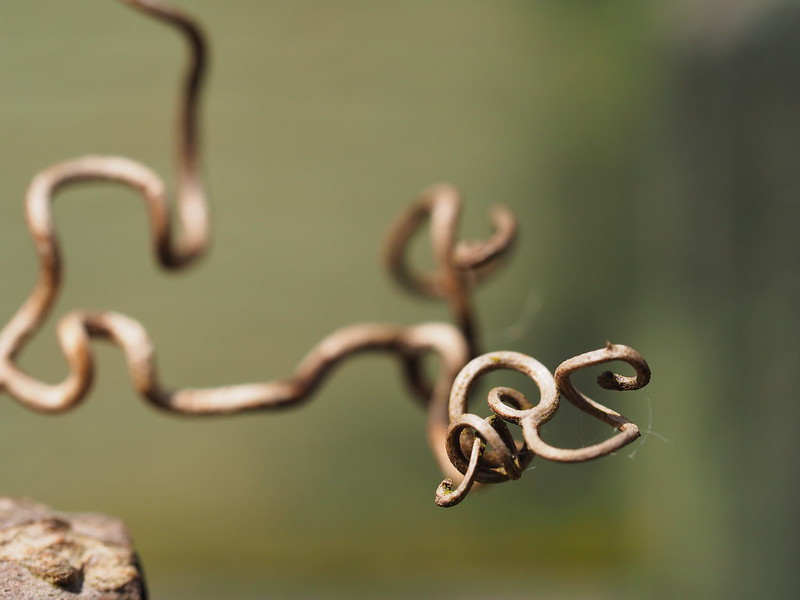Virtuous, human-centered, intentions can quickly be co-opted by systems and hierarchies to more instrumental ends. It is common to hear of organisations populated by ‘good people’ that nevertheless perpetuate negative or oppressive practices because the institution, or broader environment, demands it.

This twist is something I explored at OER19 through the notion of ‘Openness as a performance of surplus’. Open Educational Practices are generally thought of as an antidote to the traditional hierarchical gate-keeping of knowledge and opportunity. They are seen as a way of using digital networks to counter ‘standard’ institutional modes.This is all to the good but only institutions with enough surplus can ‘generously’ be open at scale. If we consider the big players in Open Education then it’s perhaps no surprise that they tend to be high status and wealthy institutions (I’m thinking of the institutions behind some of the major MOOC platforms for example).
This is not to say that there aren’t good intentions or effects in ‘massive’ or institutional-level approaches to openness, it’s more a call to be alert to the risk that these intentions can get subsumed by agendas around status and profile – they can quickly be drawn back into the business ideology they (in theory) attempt to circumvent.
The Big Moka approach to generosity
In the OER19 session I explored how generosity can hide poor intentions through the story of Ongka’s Big Moka, an ethnographic film from the 70s I was shown as an undergrad*. The film follows Ongka, a leader within the Kawelka people in Papua New Guinea, as he attempts to collect together enough pigs and other items of value to put on a successful Moka event. In the ceremony Ongka gifts all that he has amassed to the ‘big man’ of a neighbouring community. Ongka’s aim is to give gifts of a greater value than he received in the last Moka and thus demonstrate, through generosity, that he is the ‘bigger man’. As Ongka says when he is successful:
“Now that I have given you these things, I have won.
Ongka
I have knocked you down by giving so much.”
I worry that this is how the values of Open Educational Practice are twisted when institutionalised and scaled. A sincere generosity becomes warped into a performance of surplus or power which risks perpetuating digital forms of colonialism.
Who cares?
The danger of these twists is something myself and Bonnie Stewart want to explore in the context of ‘Care’ at OER20. In the workshop we are asking if open forms of pedagogy can help to scale care. The workshop is shaped by our concern that care is usually framed through the development of relationships – it’s a social process. Given this, it’s important to consider how care might work in massified education systems.
“On all fronts within higher ed the responsibility to respond with care converges on front-line teaching staff who may be oxymoronically required to offer emotional labour within ambivalent or uncaring structures, creating pedagogical commitments which may not be sustainable, or may foster feelings of inadequacy (Bryant, Lanclos, and White, 2019). What do we achieve if only those who are privileged enough to have few students, or an abundance of time, are in an actual position to invest in an ethic of care?”
OER20 workshop submission
Technology doesn’t care
Many of us are concerned that technology is being proposed as the ‘solution’ to care-at-scale. With terms such as ‘personalisation’ and ‘predictive analytics’ often being used in a way which implies that the tech can take the strain as long as we feed it enough data. This is why the subject of care-at-scale within education is so important to discuss. Especially where it risks becoming a technologically supported institutionalised asset which we have to then build safe, human-centred, spaces of authentic care outside of (or to hide from it).
I think it’s fair to say that myself and Bonnie are not convinced that open pedagogy can help to scale care, or even if ‘scaling care’ is a valid idea. What we are sure of is that this is a discussion that needs to take place, especially in education systems where, despite the promise of technology, the burden of care is often with overworked members of staff in precarious roles.
*Part of Granada Television’s Disappearing World Series which ran from 1969-1993. It was first aired in the UK on 11 December 1974
https://en.wikipedia.org/wiki/Ongka%27s_Big_Moka
I studied on a ‘Time-Based Media’ course which was developed from an ethnographic film making course. As such, key academics were Anthropologists interested in how digital technology opened up new modes of storytelling and narrative. It was an excellent course.
Bryant, P., Lanclos, D. and White, D. (2019). Precarious voices: The shared hopes and dreams of those teaching and supporting learning in digital contexts . https://ses.library.usyd.edu.au/bitstream/handle/2123/20694/precarious%20voices.pdf?sequence=2&isAllowed=y